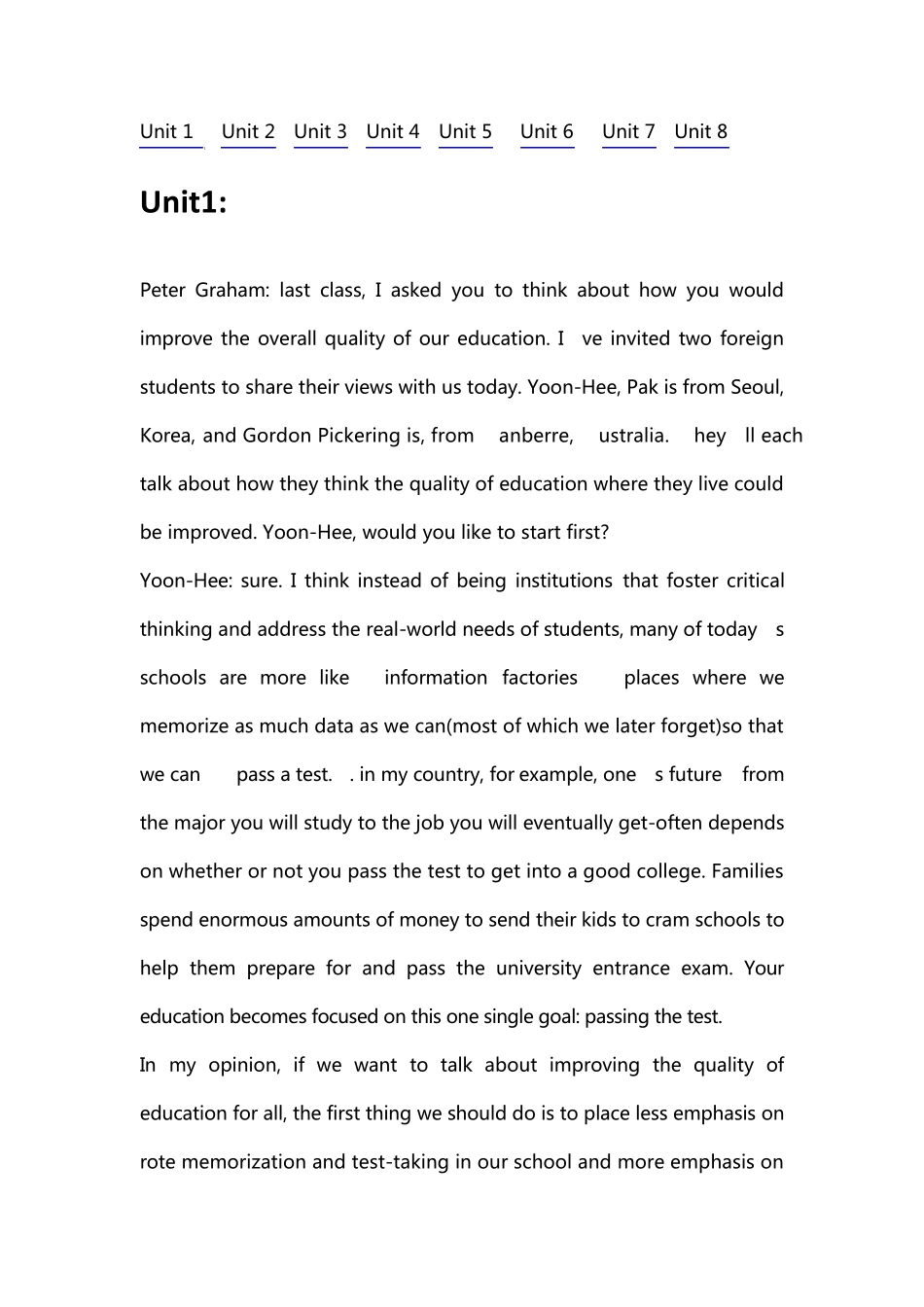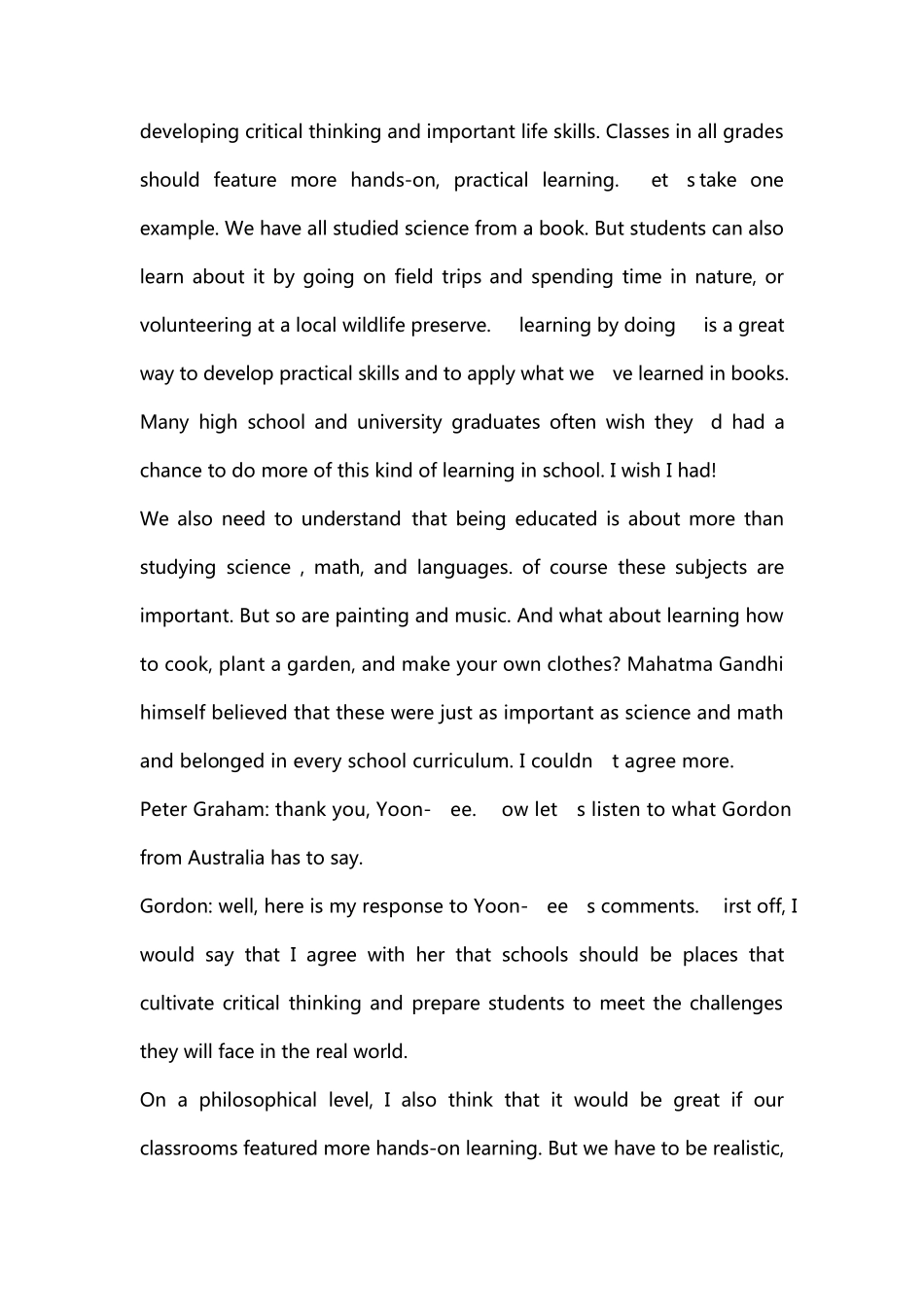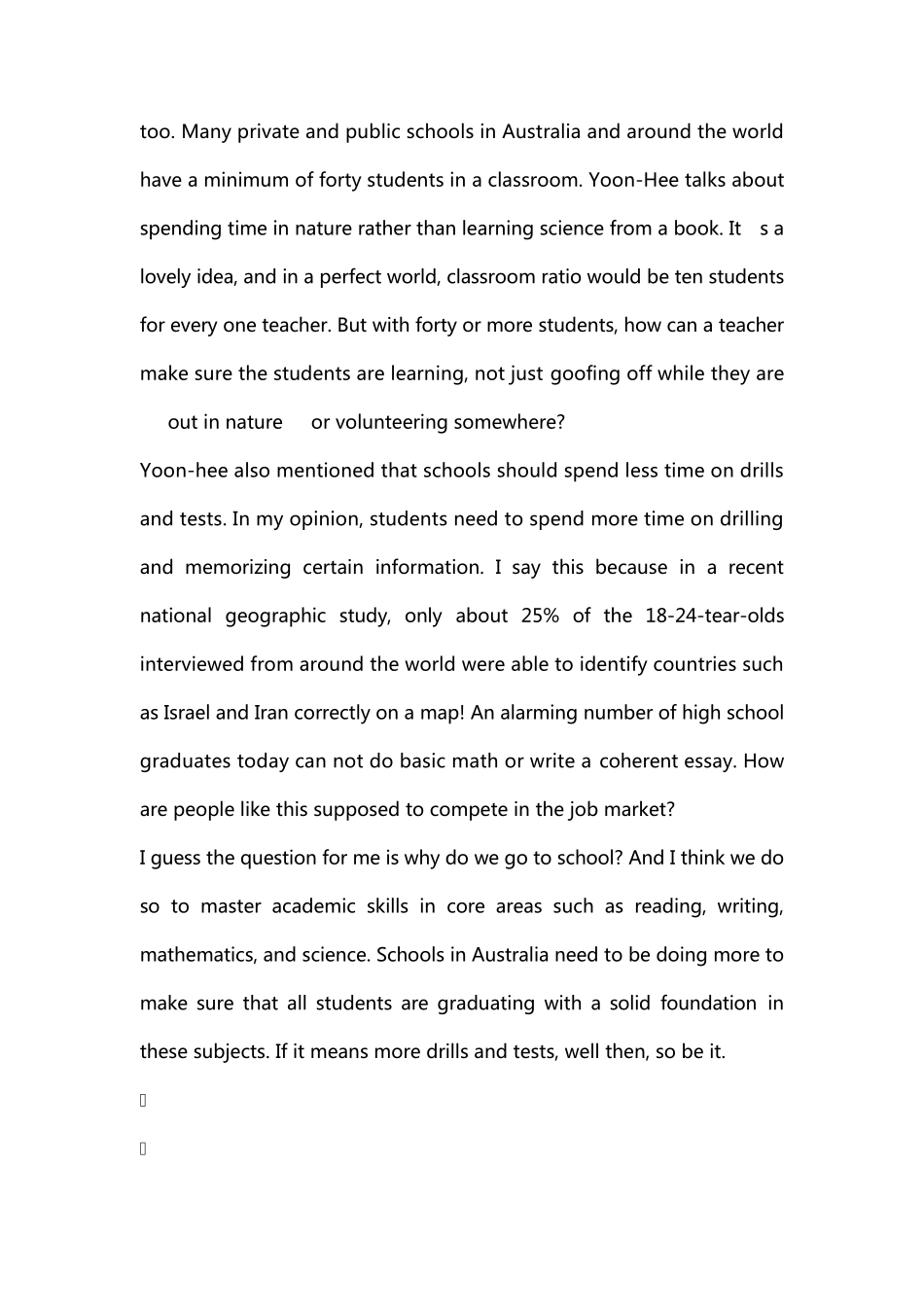Unit 1 Unit 2 Unit 3 Unit 4 Unit 5 Unit 6 Unit 7 Unit 8 Unit1: Peter Graham: last class, I asked you to think about how you would improve the overall quality of our education. I’ve invited two foreign students to share their views with us today. Yoon-Hee, Pak is from Seoul, Korea, and Gordon Pickering is, from Canberre, Australia. They’ll each talk about how they think the quality of education where they live could be improved. Yoon-Hee, would you like to start first? Yoon-Hee: sure. I think instead of being institutions that foster critical thinking and address the real-world needs of students, many of today’s schools are more like “ information factories ” —places where we memorize as much data as we can(most of which we later forget)so that we can “ pass a test.”. in my country, for example, one’s future—from the major you will study to the job you will eventually get-often depends on whether or not you pass the test to get into a good college. Families spend enormous amounts of money to send their kids to cram schools to help them prepare for and pass the university entrance exam. Your education becomes focused on this one single goal: passing the test. In my opinion, if we want to talk about improving the quality of education for all, the first thing we should do is to place less emphasis on rote memorization and test-taking in our school and more emphasis on developing critical thinking and important life skills. Classes in all grades should feature more hands-on, practical learning. Let’s take one example. We have all studied science from a book. But students can also learn about it by going on field trips and spending time in nature, or volunteering at a...


